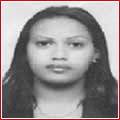COVID-19: How more access to the internet can reduce existing barriers for women’s rights in Africa
Posted: 4 May, 2020 Filed under: Nelly Warega, Tomiwa Ilori | Tags: Access to Information, access to information online, Africa, civil society organisations, coronavirus, COVID-19, CSOs, digital platforms, digital skills, domestic violence, health services, inequalities, International Covenant on Civil and Political Rights, internet access, Kenya, Lagos State Government Health Service Commission, lockdown, mainstream media, maternal health, maternal mortality, Mozambique, Nigeria, pandemic, PPE, PPEs, smart phones, South Africa, Uganda, women's rights Leave a comment Authors: Nelly Warega* and Tomiwa Ilori**
Authors: Nelly Warega* and Tomiwa Ilori**
*Legal Advisor, Women’s Link Worldwide
**Doctoral researcher, Centre for Human Rights, University of Pretoria
On 17 April 2020, a Twitter user tweeted about a hospital in Lagos that demanded personal protective equipment (PPE) from a woman seeking to give birth at the facility. The incident, according to the user happened at the General Hospital, Ikorodu, under the Lagos State Government Health Service Commission. The PPEs have become important for health workers given the surge in transmission COVID-19 across the world. However, despite the rising demand and scarcity of PPEs, a conversation on the propriety of placing the burden of procurement of PPEs on expectant mothers is vital.
A new hope to Ethiopian Women’s Rights CSO’s?
Posted: 7 September, 2018 Filed under: Dunia Mekonnen Tegegn | Tags: Civil Society Organizations, Civil Society Proclamation, CSOs, CSP, Ethiopia, freedom of association, gender equality, women rights Leave a comment Author: Dunia Mekonnen Tegegn
Author: Dunia Mekonnen Tegegn
Human rights lawyer, Ethiopia
A number of scholars have discussed the implication of the Civil Society Proclamation (CSP) in terms of realizing human rights recognized under the Constitution of the Federal Democratic Republic of Ethiopia (FDRE). However, the quality of attention given to the direct implication of this proclamation on women’s rights organizations and on measures that are focused on gender equality is not significant.
This article argues that the CSP of Ethiopia is and has been unconstitutional and violates the rights of women to freedom of association that is recognized under the aspirations and provisions of the FDRE Constitution. It goes beyond the rhetoric and provides a practical overview of the myriad of challenges the women’s rights movement faced in its effort to tackle down gender inequality in the country.
Restrictions on the operation of civil society organizations in Africa violate freedom of association
Posted: 11 June, 2012 Filed under: Esete B Faris | Tags: African Charter on Democracy, civil society, CSOs, Egypt, elections, Eritrea, Ethiopia, freedom of association, funding, governance, human rights monitoring, intimidation, limitations, registration, Zimbabwe 4 Comments Author: Esete B Faris
Author: Esete B Faris
LLM (Human Rights & Democratisation in Africa) student, Centre for Human Rights, University of Pretoria
The role of civil society cannot be underestimated in Africa. Despite the fact that several governments are suppressive, there is widespread circulation of information on human rights abuses and successes. This is attributable to the immense role that civil society plays. Without a civil society in Africa, the world would not hastily recognise the shortcomings of African leaders’ regimes.
It is undeniable that an independent and effective civil society contributes to the protection and promotion of democracy and human rights in a country. The role of Civil Society Organisations (CSOs) is to serve as a watchdog at the domestic level and international level. This implies that the right to freedom of association is essential for CSOs to operate effectively and efficiently.
